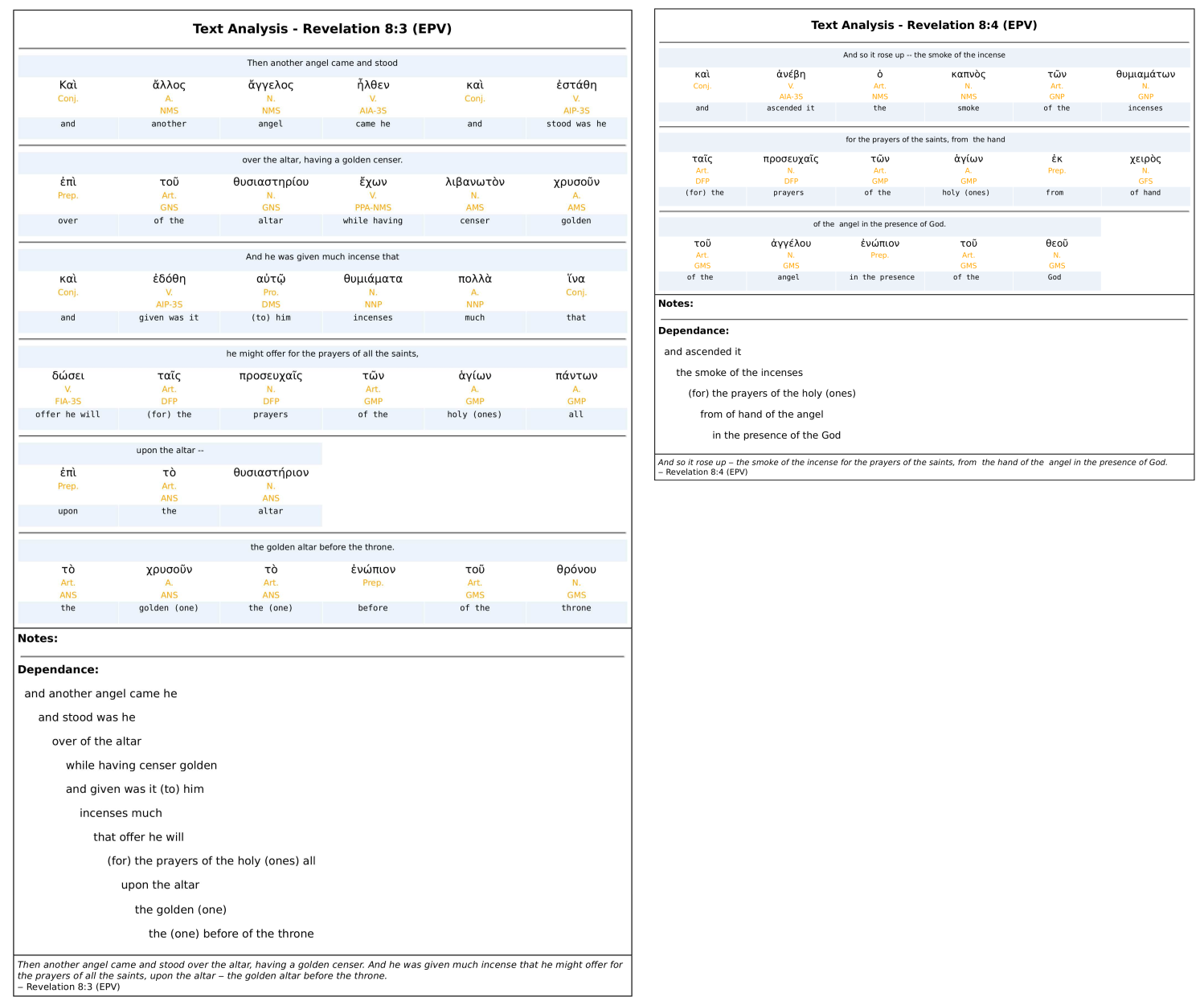Where does "with" come from? Is it translator's extrapolation?
Not so much. The dative can rarely go unsupplemented by a proposition (usually in, with, by etc). At least without doing violence to its function in the sentence in relation to the other parts (imagine replacing 'I am going the house,' instead of 'I am going to the house'—yet if English had a dative form of 'house,' you could perhaps omit a preposition).
That is, it's more intrinsic to the translation than what we would call an extrapolation or 'interpetative license.'
The Greek of 8:3 reads (W&H NA27):
Καὶ ἄλλος ἄγγελος ἦλθεν καὶ ἐστάθη ἐπὶ τοῦ θυσιαστηρίου ἔχων λιβανωτὸν χρυσοῦν, καὶ ἐδόθη αὐτῷ θυμιάματα πολλὰ ἵνα δώσει ταῖς προσευχαῖς τῶν ἁγίων πάντων ἐπὶ τὸ θυσιαστήριον τὸ χρυσοῦν τὸ ἐνώπιον τοῦ θρόνου.
might be understood as follows:
And another angel came and stood at the altar, having a golden censer, and there as given him much incense, that he should thus offer the prayers of all the saints at the golden altar before the throne of God.
The Vulgate has for ἵνα δώσει ταῖς προσευχαῖς "ut daret de oratiónibus" ("that he should offer of/from the prayers...")
However, given that the meaning with the preposition is precisely "the prayers of the saints is symbolized by the incense, then in this case omitting it is actually a better translation.
Revelation 5:8—an explicit answer to the question
"This would mean that incense is actual prayers, not something that is mixed together with the prayers as KJV rendering implies"
Indeed it does. The Greek of 5:4 reads (W&H NA27):
Καὶ ὅτε ἔλαβεν τὸ βιβλίον, τὰ τέσσερα / τέσσαρα ζῷα καὶ οἱ εἴκοσι τέσσαρες πρεσβύτεροι ἔπεσαν ἐνώπιον τοῦ ἀρνίου, ἔχοντες ἕκαστος κιθάραν καὶ φιάλας χρυσᾶς γεμούσας θυμιαμάτων, αἵ εἰσιν αἱ προσευχαὶ τῶν ἁγίων·
And when he had opened the book, the four living creatures, and the four and twenty ancients fell down before the Lamb, each having a harp, and golden bowls of incense, which are the prayers of saints.
Appendix
St. John might have drawn from/seen the same thing happening (depending on your view of inspiration) as described in the book of Tobit. If so, this further confirms that the angels are offering the prayers of the saints before God whatever way you look at it.
Consider the doctrinal alignment between the two:
Tobit 12:12-15 ([LXX])
When thou didst pray...I offered thy prayer to the Lord. ... For I am Raphael, one of the seven angels who stand [παρεστήκασιν] before [ἐνώπιον] the glory of the Lord.
Revelation 8:2-3
And I saw seven angels standing [ἑστήκασιν] in the presence of God; and there were given to them seven trumpets. And another angel came, and stood before the altar, having a golden censer; and there was given to him much incense, that he should offer of the prayers of all saints upon the golden altar, which is before [ἐνώπιον] the throne of God.
